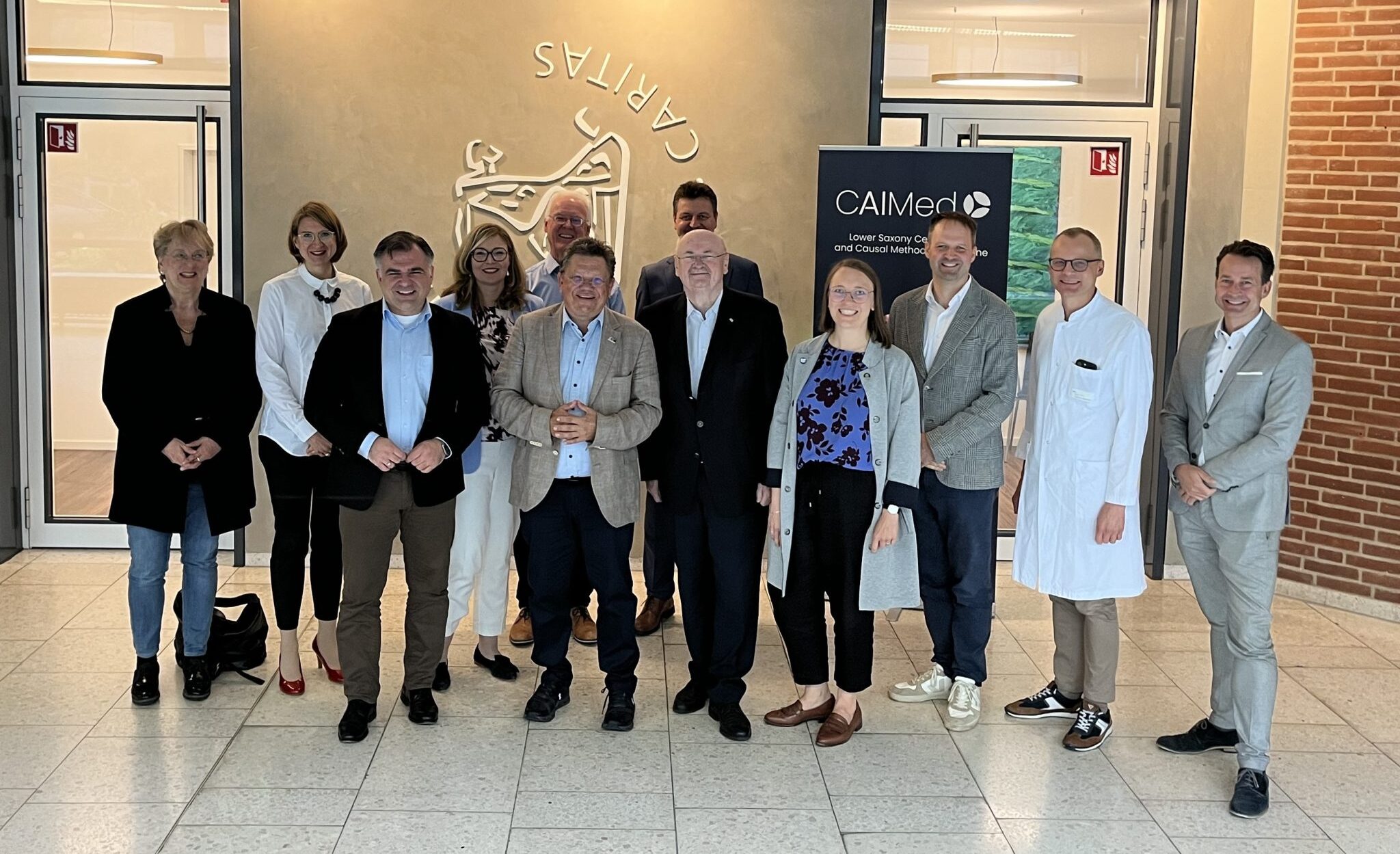High-level visit to the Lower Saxony Centre for Artificial Intelligence and Causal Methods in Medicine (CAIMed): Lower Saxony’s Minister of Health, Dr Andreas Philippi, and Dr Christos Pantazis, Member of the Federal Parliament, learned more about the potential of artificial intelligence (AI) in healthcare. The discussion with experts from CAIMed and the Diabetes@Work initiative took place at Hannover Medical School in September.
L3S director Prof Dr Wolfgang Nejdl, who is also the spokesman for the CAIMed board, began by giving the guests an insight into the many opportunities for trustworthy AI methods in medicine. Prof Dr Michael Machollek, a member of L3S and the CAIMed board, presented use cases from CAIMed that are already significantly improving patient care, including an AI model that predicts the risk of sepsis in paediatric intensive care patients. Other presentations focused on the potential of AI in the early identification of high-risk patients.
Minister Philippi regards AI as playing a key role in the sustainability of the healthcare system. However, he also highlighted the challenge of implementing and politically prioritising prevention programmes, which often have a long-term impact. Pantazis outlined possible solutions, such as integrating AI methods into the upcoming reform of disease management programmes for the chronically ill. Incentives and a clear regulatory framework are needed to collect meaningful data and embed innovative solutions in healthcare organisations, he said.
The event highlighted the enormous opportunities that the use of AI in healthcare can bring, especially in the fight against and prevention of chronic diseases. In the end, all participants agreed that close cooperation between research, industry and politics is essential to fully exploit the potential of future technologies.
Further information: https://caimed.de/


